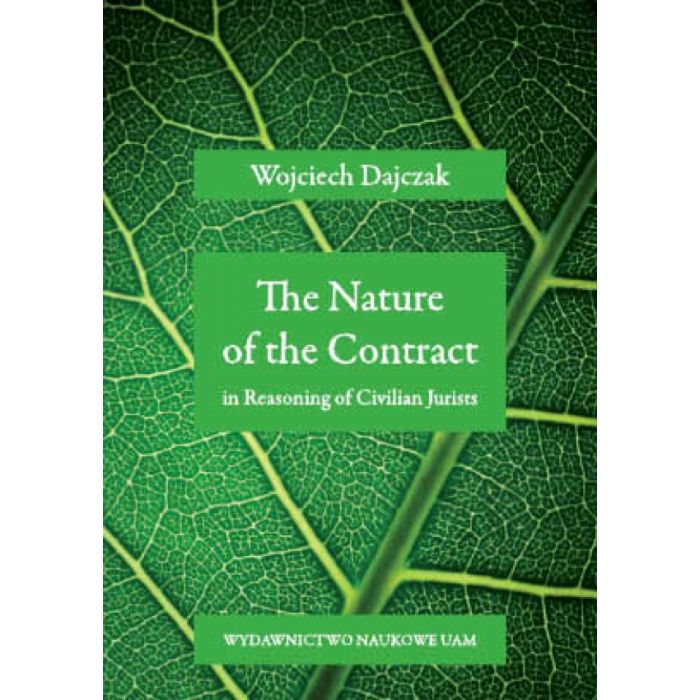The Nature of the Contract in Reasoning of Civilian Jurists
Praca zorientowana jest na wyjaśnienie trzech pytań: kiedy i dlaczego kryterium „natury umowy” zostało wprowadzone do argumentacji prawniczej; w jaki sposób interpretacja tego kryterium wpłynęła na rozwój prawa umów; jakie wnioski płyną z tego doświadczania dla współczesnej dyskusji o prawie kontraktów, a w szczególności szerokiego włączenia kryterium „natury umowy” do projektów harmonizacyjnych. Badania pokazały, że kryterium natury umowy było i jest użyteczne w uzupełnianiu i korygowaniu postanowień umownych. Pozwoliły wskazać dwa typy „ładu kontraktowego”, do którego taka argumentacja się odwoływała. Pierwszy autor określa jako systemowy, drugi – ekonomiczny. Zrekonstruowane doświadczenie pokazuje jak historia może inspirować dyskusję o celowości i sposobie włączenia klauzuli natury umowy do tekstu prawnego. Pokazuje także, że zrekonstruowane cechy tzw. „ładu ekonomicznego” mogą inspirować wykorzystanie klauzuli natury umowy w argumentacji prawniczej.
Roman legal texts were from the end of the 11* century until the rise of national civil codes one of important foundations of the Civil Law Tradition. They introduced into the discourse of jurists of continental Europe inter alia the notion natura contractus. This Latin phrase has formal equivalents in modern civil codes, in particular in art. 1135 CC, § 307 BGB and art. 3531 PolKC. This formal similarity raises the question of whether the concepts represented by these phrases are similar and if so, to what extent. The analysis of this issue allows us to identify the common and fixed linguistic intuition of jurists, according to which nature assumes the existence of a certain order. Since Antiquity the nature of the contract concept directed the attention of jurists at the economic or systematic order. The first one, I mean transactions structures covering the legitimate expectations of a party to a contract, independent from the positive law. The second one, I mean models and classifications of contracts imposed by the positive law. Of course, we cannot speak of any linear evolution. The recent developments in application of the nature of the contract clause should allow for economic purposes supporting the attainment and use of the benefit the creditor might legitimately expect upon entering into a contract. These practice leads to greater interference with the content of an agreement than is the case with the medieval understanding of the nature of the contract, which dominated legal discourse for centuries, i.e. the implication of terms implied by law (so-called naturalia contractus). In a more general dimension, my research provides historical and comparative arguments for reliance contract theory.
| Informacje szczegółowe | |
|---|---|
| Table of Contents |
Pobierz plik

|
|
|
|
| Wersja publikacji | drukowana |
| Format | 14,5 x 20.5 |
| Typ publikacji | Monografia |
| Wydanie | I |
| Seria | Prawo nr 177 |
| ISSN | 0083-4262 |
| ISBN | 97883-232-2474-7 |
| Liczba stron | 194 |
| Rodzaj oprawy | miękka |

